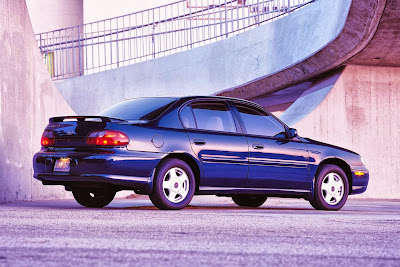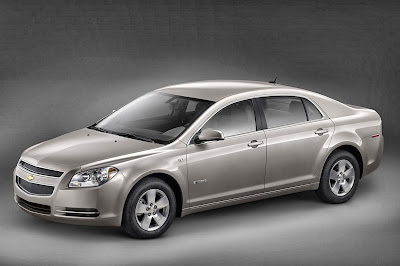Saturday, October 05, 2013
Did you know that in 1964, a British firm named Leyland Motor Corp., challenged the United States blockade of Cuba by selling 450 buses to the Cuban government? In the same year, The Beatles kicked off the “British invasion” of America when their song “I wanna hold your hand” landed No. 1 spot on the U.S. singles charts, a first for the popular band.
It was also a good year for the middle class as the economy had fully overcome the hardships of war and people had money to spend. Who could blame them, when a gallon of gas cost 30 cents and a movie ticket sold for $1.25? It was the perfect timing for GM to introduce the Chevrolet Malibu. Borrowing its name from the Los Angeles-area enclave that was the center of the beach culture in the 1960s, the Malibu began life as the top trim line for Chevrolet’s intermediate platform, which also included the Chevelle as an entry-level model, and the El Camino truck. The Malibu was aimed at the growing number of suburban customers who wanted a roomy yet efficient car for their long daily commutes. The original Chevrolet Malibu was introduced in 1964 as the brand’s first “intermediate” car and one of the first midsize cars in the United States. Prior to the Malibu, Chevrolet’s passenger car lineup consisted of a range of full-size models, headlined by Impala, along with the compact Chevy II (Nova), Corvair and Corvette. So, are you ready to take a trip down memory lane and see how the Malibu evolved through the years?
First generation: 1964 - 1967 The Malibu featured a body-on-frame construction and responsive coil-spring front suspension. Originally launched as a premium sedan for families, the Malibu couldn’t ignore the muscle car wars of the 1960s and soon the sporty Malibu SS was born. However, the Chevelle SS assumed the role of the lineup’s muscle car in 1966 and the Malibu continued as the premium model. The El Camino was also part of the lineup.
Second generation: 1968 - 1972 The 1968 – 1972 models were based on the original intermediate platform but featured a slightly shorter 112-inch wheelbase for coupes and convertibles and a longer, 116-inch wheelbase for sedans and wagons. Like the first generation, each model year in the second generation had distinctive year-over-year styling differences.
Third generation: 1973 - 1977 In 1973 Chevrolet introduced a new frame for the third-generation Malibu that retained the previous wheelbases but featured 5-inch longer and 1-inch wider bodies in order to comply with new federal crash standards. A European-inspired Laguna model stood atop the midsize hierarchy for a brief period.
Fourth generation: 1978 – 1983
The Chevelle line was discontinued after 1977, with the fourth generation of downsized midsize cars sticking only with the Malibu name from 1978 onward. Malibu models were a foot shorter and more than 500 pounds lighter, offering V6 and V8 engines. Chevrolet even produced a police car version.
Fifth generation: 1997 - 2003 From 1984 to 1996, the Malibu nameplate disappeared, only to be reintroduced as an all-new, front-wheel-drive sedan available with four- and six-cylinder engines in 1997.
Sixth generation: 2004 – 2007
For 2004, Malibu switched to GM’s global architecture that offered improved technology, efficiency and performance, including the return of the Malibu SS, which was powered by a 240hp 3.9-liter V6 engine. The Malibu range also included the Malibu Maxx five-door extended sedan, which brought greater cargo room, sliding and reclining rear seats.
Seventh generation: 2008 – 2012 The new generation used an enhanced, longer version of the platform introduced on the 2004 Malibu. It also featured improved safety features, including standard head curtain side air bags. It was voted the 2008 North American Car of the Year and was a critical success for GM exceeding the brand's expectations.
Eighth generation: 2013 - The all-new Malibu offers the segment’s first engine with standard stop/start technology and an available 2.0-liter turbo engine with 259 horsepower. The standard 2.5-liter four-cylinder engine delivers 65 percent more horsepower than the original Malibu’s standard 3.2-liter six-cylinder unit. The 2013 Malibu received mostly lukewarm reviews forcing GM to usher in a facelift only 18 months after launch, with the 2014MY sporting light styling tweaks, improved interior space, and updated powertrains and chassis.
By Dan Mihalascu
Categories: Chevrolet, Chevrolet Malibu, Classics, Galleries, GM |




































































No comments:
Post a Comment